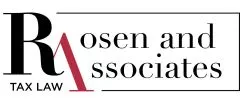- with Senior Company Executives, HR and Finance and Tax Executives
- with readers working within the Accounting & Consultancy, Technology and Property industries
Landlords who are not tax residents of Canada and their tenants should be aware of filing and reporting requirements relating to the 25% federal non-resident withholding tax charged on rental income on real and immovable property.
Timing and Form
Either the tenant or a Canadian-resident agent of the landlord (property manager, real estate agent, a family member/friend, etc.) is responsible for remitting the tax to the CRA. They must withhold 25% of the gross rent to be paid on or before the 15th day of the month after rent is paid or credited. The tax withheld and remitted at the end of each month is considered an installment on tax liability – any overpayment will be refunded at year-end,
The payor tenant/agent must provide the landlord with 2 copies of a filled NR4 form detailing the gross amount of rental income paid/credited and the sum of tax withheld. They must also send the CRA an NR4 information return, which can be filed electronically via the CRA's Web Forms portal.
Please note that this is purely a federal tax.
Joint and Several Liability for Failure to Remit
Pursuant to S. 227(8.1) of the Income Tax Act, a landlord and payor are jointly and severally liable for failures to make the required remittances. This means that a tenant with a non-resident landlord is personally liable to pay on behalf of the non-resident. This includes any interest, and a 10% penalty associated with a failure to pay. Please note that this interest compounds daily.
A recent decision by the Tax Court of Canada in 3792391 Canada Inc. v. The King clarified that a tenant is liable for withholding the proper amount of tax, even if they had no actual knowledge of their landlord's tax residency, although tenants may avail themselves to a due diligence defence.
However, any amounts that a tenant pays to the CRA in satisfaction of this liability can be recovered by the tenant by deducting the sum from the payments they are required to make to their landlord.
Filing an Election to Instead Withhold Net Rent Instead of Gross Rent
A landlord or their Canadian-resident agent may file a s. 216 election to instead allow for the remittance of 25% their net Canadian-source rental income instead of the gross amount.
If a landlord chooses to make this election, they will instead report their rental income in a separate Section 216 return, which must be filed within two years from the end of the year that the rental income was paid/credited. If this return is not filed, the election will be considered to be invalid.
To file this election, the landlord or their agent must first submit Form NR6 on or before January 1 of each year, or before the first rental payment is due for the year. The non-resident landlord must also undertake to file a Canadian federal income tax return (T1159) by June 30th of the following year.
The tenant/agent must continue to withhold based on gross income until they have received written approval of the NR6 form from the CRA.
Conclusion
It is vitally important that landlords and tenants are clear on the former's tax residency status, given that non-compliance with reporting and withholding requirements can give rise to significant joint and several tax liability for both parties.
The content of this article is intended to provide a general guide to the subject matter. Specialist advice should be sought about your specific circumstances.



